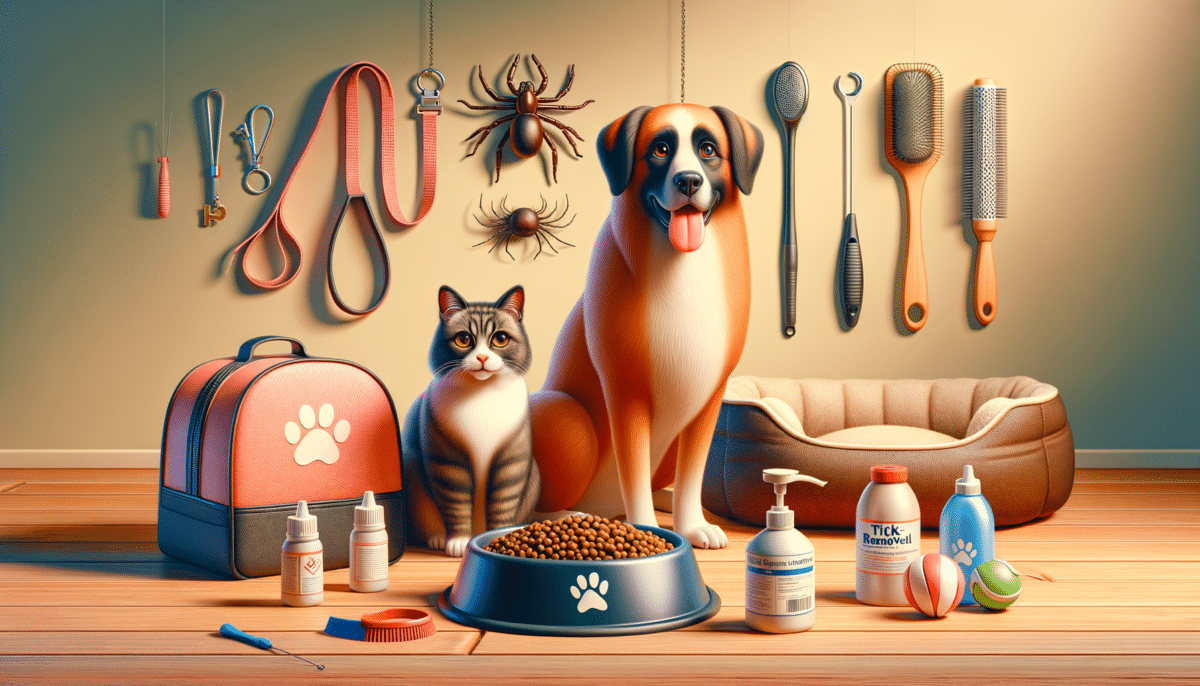Nutrition: The Foundation of Pet Health
Nutrition plays a pivotal role in the overall health and well-being of pets. Just like humans, pets require a balanced diet to maintain their energy levels, support growth, and prevent diseases. The nutritional needs of pets can vary significantly based on their species, age, size, and health status. For instance, a puppy or kitten will have different dietary requirements compared to an adult or senior pet. It is crucial to provide a diet that is rich in essential nutrients such as proteins, carbohydrates, fats, vitamins, and minerals.
When selecting pet food, consider the following factors:
- Ingredients: Look for high-quality ingredients that are free from artificial additives and preservatives.
- Life Stage: Choose food that is appropriate for your pet’s life stage, whether it be puppy, adult, or senior.
- Special Needs: Some pets may require special diets due to allergies, obesity, or other health conditions.
Consulting with a veterinarian can provide tailored advice on the best diet for your pet, ensuring they receive the necessary nutrients for a healthy life. Regularly monitoring your pet’s weight and adjusting their food intake accordingly is also essential in preventing obesity, which is a common issue among pets.
Regular Exercise: Keeping Your Pet Active
Exercise is an integral component of maintaining your pet’s physical and mental health. Regular physical activity helps prevent obesity, strengthens muscles, and supports cardiovascular health. For dogs, daily walks or play sessions in the park can be both enjoyable and beneficial. Cats, on the other hand, may enjoy interactive toys that stimulate their hunting instincts.
Consider these exercise tips for pets:
- Consistency: Establish a routine that includes daily exercise to keep your pet active.
- Variety: Introduce different activities to prevent boredom and engage different muscle groups.
- Safety: Ensure the environment is safe and free from hazards that could harm your pet.
Engaging in regular playtime also strengthens the bond between you and your pet, making exercise a rewarding experience for both parties. Remember, the amount and type of exercise should be appropriate for your pet’s age, breed, and health status.
Regular Veterinary Check-Ups: Prevention is Better Than Cure
Routine veterinary check-ups are crucial in ensuring your pet’s health. These visits allow for early detection of potential health issues, making treatment more effective and less costly. During a check-up, a veterinarian will conduct a thorough examination, including checking the pet’s weight, teeth, skin, and overall condition.
Key aspects of regular veterinary care include:
- Vaccinations: Keeping up with vaccinations is essential in preventing contagious diseases.
- Parasite Control: Regular treatments for fleas, ticks, and worms protect your pet from infestations.
- Dental Health: Professional cleanings and at-home dental care help prevent oral diseases.
Veterinary visits also provide an opportunity to discuss any concerns regarding your pet’s behavior or diet, ensuring comprehensive care. Establishing a good relationship with your vet can make these visits less stressful for your pet.
Grooming: More Than Just a Beauty Routine
Grooming is often perceived as a cosmetic task, but it is vital for your pet’s health. Regular grooming helps maintain a clean coat, reduces shedding, and prevents skin issues. For dogs and cats, brushing can remove loose fur and distribute natural oils, keeping their coat shiny and healthy.
Grooming essentials include:
- Bathing: Use pet-safe shampoos to keep your pet clean without irritating their skin.
- Nail Trimming: Regular nail trimming prevents discomfort and potential injuries.
- Ear Cleaning: Regularly check and clean your pet’s ears to prevent infections.
Grooming sessions also provide an opportunity to check for abnormalities such as lumps, parasites, or skin conditions. Starting grooming routines early in your pet’s life can help them become accustomed to the process, making it less stressful for both of you.
Mental Stimulation: Keeping Your Pet’s Mind Sharp
Mental stimulation is just as important as physical exercise for pets. Engaging your pet’s mind can prevent boredom and reduce behavioral issues. Puzzles, training sessions, and interactive toys are excellent ways to keep your pet mentally active.
Consider these mental stimulation strategies:
- Training: Teach new commands or tricks to challenge your pet and reinforce good behavior.
- Interactive Toys: Use toys that require problem-solving to access treats or rewards.
- Socialization: Allow your pet to interact with other animals and people to improve their social skills.
Providing a stimulating environment with varied activities can enhance your pet’s quality of life and foster a well-rounded personality. Remember, a mentally stimulated pet is a happy pet.
